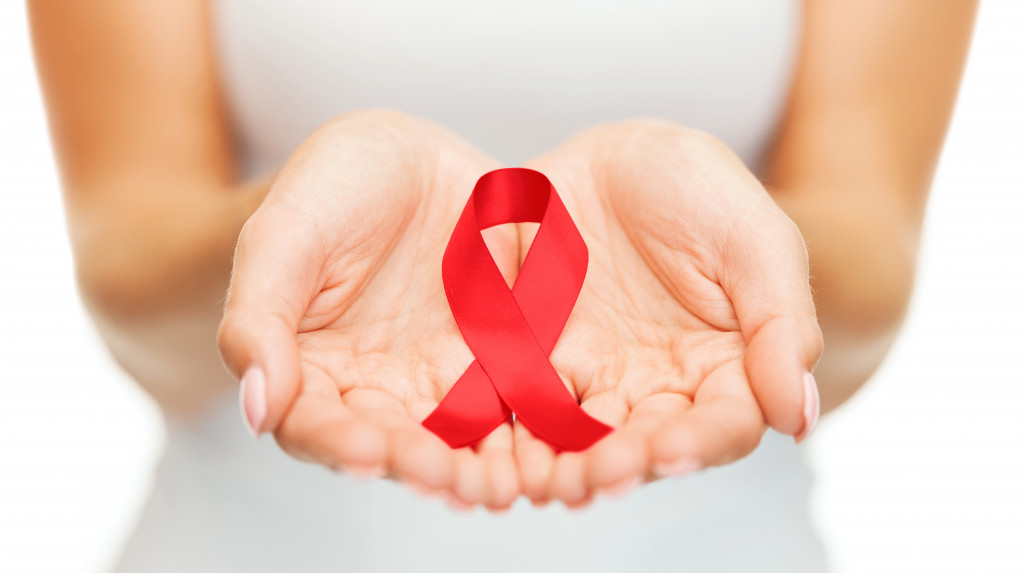- Stick to your HIV treatment plan for the best results.
- Practice good self-care, including getting enough sleep, eating a healthy diet, and exercising regularly.
- Manage specific symptoms by working closely with your healthcare provider.
- Address comorbidities that may be associated with HIV.
- Utilize HIV research studies to stay informed and potentially gain access to therapies.
Managing HIV symptoms can be challenging, but one can live a healthy and fulfilling life with the right strategies. HIV is a viral infection that attacks the immune system, making it more difficult for the body to fight infections and illnesses. As a result, people living with HIV may experience various symptoms, such as fatigue, fever, and swollen lymph nodes. However, by working closely with your healthcare provider and adopting healthy habits, you can manage your symptoms and improve your quality of life.
1. Stick to Your Treatment Plan
One of the most important things you can do to manage your HIV symptoms is to stick to your treatment plan. HIV is a chronic condition that requires ongoing management, and taking your medications as prescribed can help keep the virus under control. Your healthcare provider will prescribe antiretroviral therapy (ART) to suppress the virus and prevent it from replicating in your body. By taking your medications as directed, you can reduce the virus in your blood, improve your immune system, and lower your risk of developing AIDS-related illnesses.
2. Practice Good Self-care
Self-care is essential for managing your HIV symptoms and improving your overall health. HIV can be a stressful and challenging condition to live with, and taking care of your mental and emotional well-being is crucial.
Here are tips on how to practice good self-care:
Get Enough Sleep
Getting enough sleep is essential for managing your HIV symptoms and keeping your body and mind healthy. Aim to get 8 hours of sleep per night and ensure a peaceful environment to rest. If it’s difficult to fall asleep, consider using relaxation techniques like deep breathing or progressive muscle relaxation to help you relax. Additionally, avoid using electronic devices late at night and aim to establish a consistent sleep schedule.
Eat a Healthy Diet

Eating a healthy diet is important for managing HIV symptoms and overall health. Include plenty of fruits and vegetables in your meals and lean proteins, whole grains, and healthy fats. Avoid processed foods and refined sugars, which can disrupt your immune system and cause inflammation. Additionally, drinking plenty of water throughout the day is important for staying hydrated and keeping your body functioning optimally.
Exercise Regularly
Exercising regularly is key to managing HIV symptoms and improving overall health. Aim to get at least 30 minutes of movement daily, such as walking, jogging, cycling, or swimming. Exercise can help boost mood and energy levels, reduce stress and anxiety, and improve overall well-being.
Prioritize Your Mental Health
Living with HIV can be stressful, so it’s important to prioritize your mental health. Connect with a therapist or counselor knowledgeable about HIV, and contact support groups if you need additional help. Additionally, practice relaxation techniques like deep breathing, meditation, and yoga to help reduce stress and anxiety. Consider writing in a journal as an outlet for your emotions and thoughts. With proper care and support, you can manage your HIV symptoms and lead a healthy life.
3. Manage Specific Symptoms
HIV can cause a range of symptoms that vary from person to person. Some common symptoms include fatigue, fever, diarrhea, and swollen lymph nodes. Working closely with your healthcare provider to manage these symptoms and address your concerns is important. Depending on your symptoms, your provider may recommend medications, lifestyle changes, or other interventions to help you feel better. For example, if you’re experiencing diarrhea, your provider may recommend dietary changes or medications to reduce inflammation in your gut.
4. Address Comorbidities
Many people with HIV also have other health conditions, such as diabetes, high blood pressure, or depression. These conditions can affect your overall health and make it more difficult to manage your HIV symptoms. Working closely with your healthcare provider to address your comorbidities is important. This may involve taking additional medications, making lifestyle changes, or working with other healthcare providers to manage your care.
5. Utilize HIV Research Studies

Staying informed about HIV research is essential for managing your symptoms and staying current on the latest treatments and interventions. Many research studies are currently investigating new ways to treat HIV and improve quality of life. By becoming a research participant in HIV research, you can learn more about HIV and potentially gain access to therapies unavailable or to the general public. Additionally, you may be able to make a difference in helping researchers understand HIV and develop better treatments.
In Closing
Managing HIV symptoms is a complex and ongoing process, but following these tips and working closely with your healthcare provider can improve your quality of life and help you live well with HIV. Remember to stick to your treatment plan, practice good self-care, manage specific symptoms, address comorbidities, and stay informed about HIV research. You can achieve optimal health and well-being with the right strategies and support.

